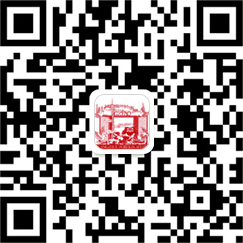Guide for foreigners in Guangzhou: Religion
As the southern gate of China, Guangzhou has been embracing foreigners coming from across the world for business, tourism, and even religious purposes for over 2,000 years.
Guangzhou boasts a long history of religion. The world's top five religions, Buddhism, Taoism, Islamism, Catholicism, and Christianity, all have a presence here. It was from Guangzhou that Buddhism and Islamism made their way into China via sea routes.
Huaisheng Mosque, also known as Guangta Pagoda, is believed to be constructed by a group of Arabs led by Abi Waqqas, a missionary who traveled on his first Muslim mission to China in the 630s during the Tang Dynasty. The name of the mosque, Huaisheng, means "remembering the sage." The Minaret, commonly known as "Guang Ta (Light Tower)," is situated in the southwest corner of the mosque.
China respects foreigners' freedom of religious belief within its territory and is committed to protecting friendly relations, as well as cultural and academic exchanges about religion between foreigners and Chinese religious groups.
Foreigners in China shall conduct religious activities in line with the law.
Foreigners are allowed to bring printed or audio-visual religious products and other religious articles for personal use when entering China. Relevant formalities are required with China Customs for bringing those other than self-used ones into the country. It is forbidden to bring into China printed or audio-visual religious products that contain content that could jeopardize the public interests of the country.
Foreigners are allowed to participate in religious activities in temples, Taoist abbeys, mosques, and churches in China.
Foreigners may preach at venues of religious activity in China at the invitation of religious groups at or above the level of province, autonomous region, or municipality directly under the central government.
For foreign religious practitioners who visit China on other identities, besides the invitation, they also need to obtain the prior consent of the religious affairs department of the people's government at or above the provincial level.
They shall abide by the regulations governing such venues and respect the religious beliefs and traditions of people in such venues.
With the consent of the religious group in China, foreigners in China may invite Chinese religious practitioners to perform baptisms, weddings, funerals, and other religious rites and ceremonies for them according to their religious doctrines and traditions. Among them, a religious wedding ceremony held for foreigners must be held between a man and a woman who have entered into a marriage relationship by the law.
Group religious events of foreigners in China shall be held in a monastery, Taoist abbey, mosque, or church approved by the religious affairs authority of the people's government at or above the county level and registered under the law, or at a temporary venue designated by the religious affairs authority of the people's government at or above the level of province, autonomous region, and municipality directly under the central government.
The quota or funds provided by foreign organizations or individuals to support Chinese students studying abroad to train religious practitioners shall be accepted according to the actual need by the national religious groups of China, which shall coordinate the selection of Chinese students studying abroad. Without due approval, foreign organizations or individuals are not allowed to recruit Chinese students studying abroad to train religious practitioners in China.
Foreigners studying in religious colleges in China shall comply with the relevant provisions of the Regulations on the Administration of Acceptance of Foreign Students by Higher Learning Institutions and be approved by a national religious group and filed with the State Bureau of Religious Affairs.
Foreigners lecturing at religious colleges in China are subject to provisions of the Measures for the Employment of Foreign Professionals in Religious Colleges.
Foreigners performing religious activities in China shall abide by Chinese laws and regulations.
Foreigners shall not interfere with the establishment and changes of Chinese religious groups or venues of religious activity, the selection and changes of religious practitioners by Chinese religious groups, or any other internal affairs of Chinese religious groups.
Foreigners are not allowed to establish religious organizations, offices, venues of religious activity, religious colleges, or religious training courses in any name or form in China;
nor appoint religious practitioners among Chinese citizens, develop religious followers, or preach in venues of religious activity without due approval;
nor preach on premises other than a legally registered venue of religious activity or hold religious gatherings without approval;
nor hold religious activity with the participation of Chinese citizens at a temporary location of religious activity (except for Chinese religious practitioners invited to preside over such religious activity);
nor produce or sell religious books, audio-visual religious products, electronic religious publications, or any other religious articles, or distribute religious propaganda materials.
Venues of religious activities open to the public
Guangzhou has a long history of diversified religious traditions, including the five major religions: Buddhism, Taoism, Islam, Catholicism, and Christianity. Among them, Buddhism, Taoism, and Islam have a history in Guangzhou that spans thousands of years, while Catholicism and Christianity have a history of more than two or three hundred years in the city. Guangzhou enjoys a profound cultural heritage related to religion. Ten historical buildings of the five major religions, including temples, abbeys, mosques, and churches, can be found on the traditional central axis of the old quarters of Guangzhou, contributing to the unique cultural spectacle of religious harmonization in the city.
At present, among all 84 registered venues of religious activity that are open to the public in the city, six of them are key protected cultural relic units at the national level, two at the provincial level, and 10 at the municipal level. These religious buildings are living evidence of the city's profound religious cultural heritage and witnesses its evolution as a renowned historic city.
Copyright © Foreign Affairs Office of Guangzhou Municipal Government,
Hong Kong and Macao Affairs Office of Guangzhou Municipal Government All rights reserved.
Presented by China Daily.
京ICP备13028878号-28



